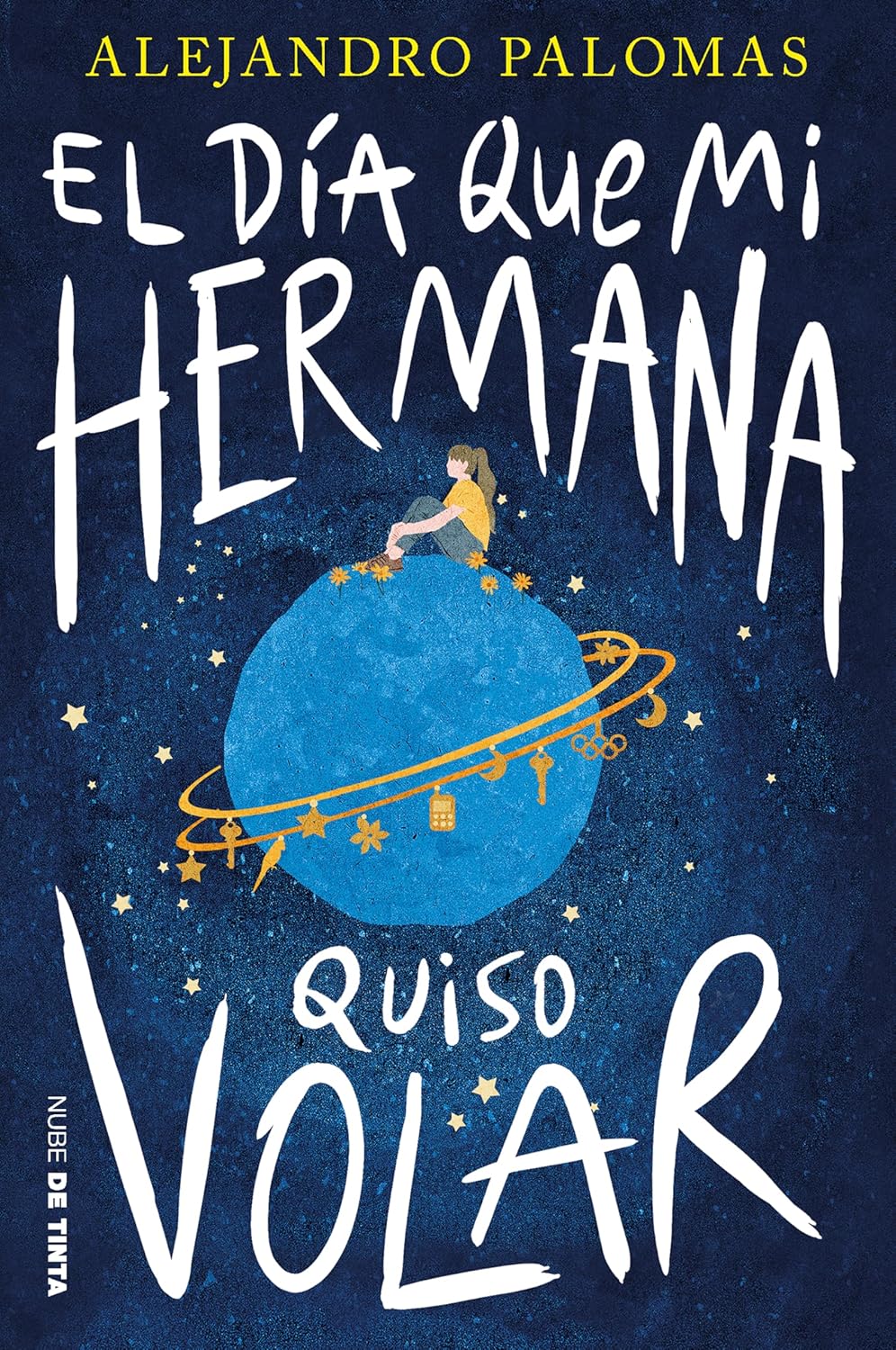“When there are twins and one of them dies, is the other still called a twin, or something else?” This is the question the young protagonist of this moving drama tries to answer, after his twin sister falls from a rooftop. Was it an accident… or did she jump? Bestselling author Alejandro Palomas invites us to look behind the closed doors of adolescence, where silences are born, fears grow, and invisible wounds are formed. An intense drama, full of pain, tenderness, and above all, light.
“When there are twins and one of them dies, is the other still called a twin, or something else?” That question haunts the mind of Elio, a 13-year-old boy, ever since he found out his sister Eva had died falling from the roof of their grandmother’s house. No one knows what she was doing up there. Since then, Elio has stopped speaking, and his parents don’t know how to help him… or how to cope with their loss.
Elio starts therapy with a psychologist, Mateo, who tries to help him make sense of what happened — Elio is the only one who knows the truth about what happened to Eva. He was there when it happened.
Though they were physically identical, Elio and Eva couldn’t have been more different. Elio, shy and withdrawn, found refuge in his sketchbook and only truly connected with Eva. She, on the other hand, was bright and fearless—a gifted child who never went unnoticed, and that was rarely a good thing. She constantly argued, rebelled, and demanded precision in everything, often exhausting those around her—everyone except Elio and their father, who had high hopes for her. Eva’s passion was gymnastics. She dreamed of being like Nadia Comăneci and competing in the Olympics.
The story unfolds through multiple points of view: Elio’s, his mother Mónica’s, and Dr. Mateo’s. Bit by bit, through flashbacks, the causes and consequences of Eva’s death come to light: Elio was being bullied and Eva fiercely defended him; Eva, in turn, struggled silently with feeling like a freak due to her giftedness. Her world crumbled when she accidentally injured her knee during training. After that, she grew darker and more distant, pulling away from her family—especially from her father—until one day she asked Elio for a favor: to help her learn how to fly.
She explained that her fear of heights was what had caused her to fall from the balance beam, and she needed to conquer it in order to keep training. So, over the course of several weeks, Eva organized a series of rooftop “classes” to overcome her vertigo. Elio followed her lead, though always with a growing sense of dread.
The truth that Mateo discovers through Elio’s drawings is devastating: Eva didn’t fall. She took her own life. And Elio was an unwitting accomplice in her goodbye, unaware of her true plan… But it seems there’s something else the boy is still hiding.
On the day of Eva’s funeral, Elio doesn’t show up. That’s when Mateo realizes: Elio isn’t just mourning his sister—he wants to follow her.
Worried, Mateo rushes to the rooftop and finds Elio hiding in a storage shed. At last, Elio confesses. He hadn’t spoken because he didn’t dare tell the truth—but he also didn’t want to live with the guilt of lying to his parents.
Mateo offers him a pact: they will invent a temporary truth that will help him move forward… until Elio decides what to do with the real one. And he reminds him that Eva asked him to live.
Elio, fragile but trusting, agrees and hugs the doctor.
But without either Mateo or Elio knowing, Mónica has followed her son and heard everything. And then, broken but relieved, she thanks her daughter… for leaving her a twin.
KEY INFORMATION: The Day My Sister Wanted to Fly is a profoundly moving story in which we witness the grieving process for a loved one through the eyes of the parents, but especially through the eyes of a teenager—almost still a child—who happens to be the twin brother of the deceased.
With strong melodramatic elements, we dive into a story about the emotional universe that can unfold behind the closed doors of a teenager’s room.
Although the story is sad, the feeling it leaves behind is far from bleak—it’s an ode to human connection, to honesty, to seeking help, and to appreciating the beauty life has to offer.
It also denounces the bullying that many children and teens endure and its devastating consequences, while also criticizing how neurodivergent individuals are still often seen as “odd.”
Author Alejandro Palomas has built a powerful narrative around silence and the distance between the adult world and the world of children. He has received the Premio Nadal and the National Youth Literature Award. In addition, he enjoys immense support from readers and the media alike.
What critics and readers say:
“I read it straight through in a single day. […] What an achievement to create an emotional thriller!!! I thought it was a remarkable book. Tremendous. It will stay with me for a long time.” — Rosa Montero
“Hard, but delicate. Talking about these topics is necessary, even if it’s painful and makes us cry. Alejandro brings a breath of hope.” — Amazon
“The Day My Sister Wanted to Fly is not just a story about a teenage girl’s death—it’s a song to life, to bonds, to the complexity of human emotions, and above all, to the importance of making room for pain and healing.” — Goodreads.
AUDIOVISUAL POTENTIAL: TV Series, Miniseries, Feature Film, TV Movie.
AVAILABLE LANGUAGES: Spanish, Catalan, Greek.

Adquirir los derechos
Para ponerte en contacto con nosotros completa el siguiente formulario y te responderemos en breve.
Error: Contact form not found.

